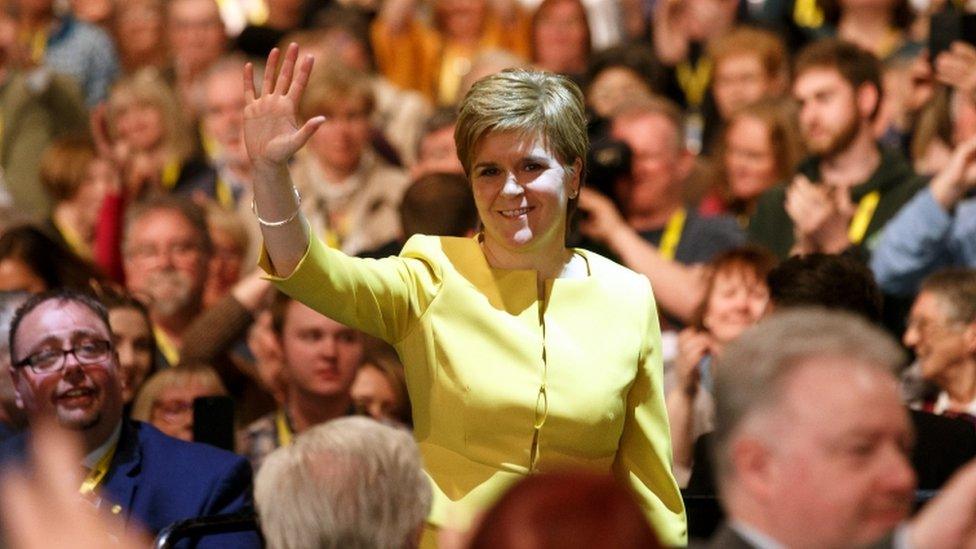Jeremy Corbyn: UK must declare a climate emergency
- Published
- comments
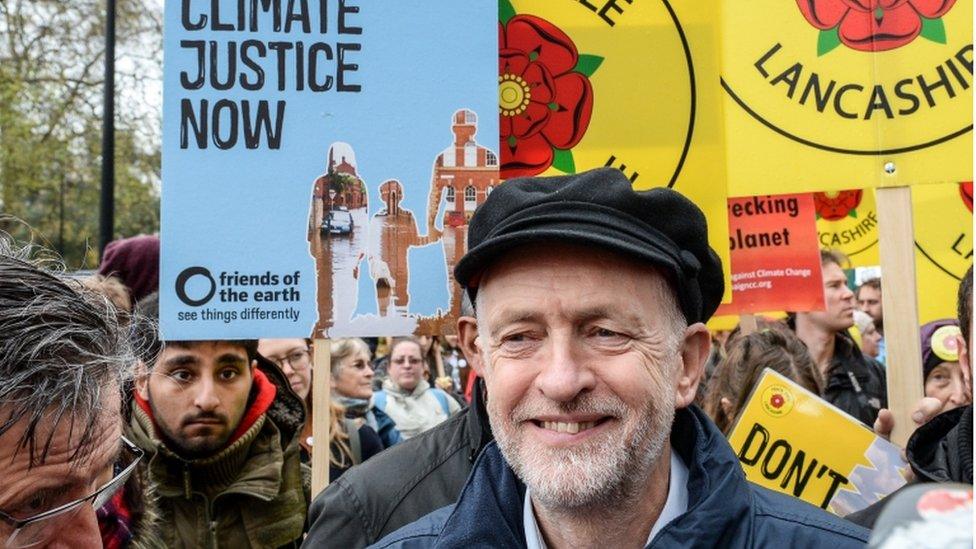
Labour leader Jeremy Corbyn has opened a parliamentary debate, calling on MPs to declare a national climate emergency on climate change.
Shadow business secretary Rebecca Long Bailey said this is "the first step towards taking more radical action".
Labour is also calling on the government to commit to achieving net zero emissions before 2050.
The UK is currently committed to reducing carbon emissions by 80% compared to 1990 levels by 2050.
The debate in Parliament comes after a series of protests by the environmental activists Extinction Rebellion.
The group described a meeting with Environment Secretary Michael Gove on Tuesday as "very disappointing" because he refused to declare a climate emergency.
Mr Gove said he "shared their high ideals" to tackle climate change but added that "we should show that we're making a difference rather than simply telling everyone how important it is to change".
The Welsh and Scottish governments have both declared a climate emergency, along with dozens of towns and cities, including Manchester and London.
Speaking on BBC Radio 4's Today programme Ms Long Bailey said Labour wanted the government to establish a target for net zero emissions "well before" 2050.
She also called for "a green industrial revolution" to "harness the huge economic potential that low carbon and renewable technology will bring" such as onshore and offshore wind and tidal technology.
"This isn't just about tackling climate change it is a huge economic opportunity to rebuild Britain," she said.

What is a climate emergency?
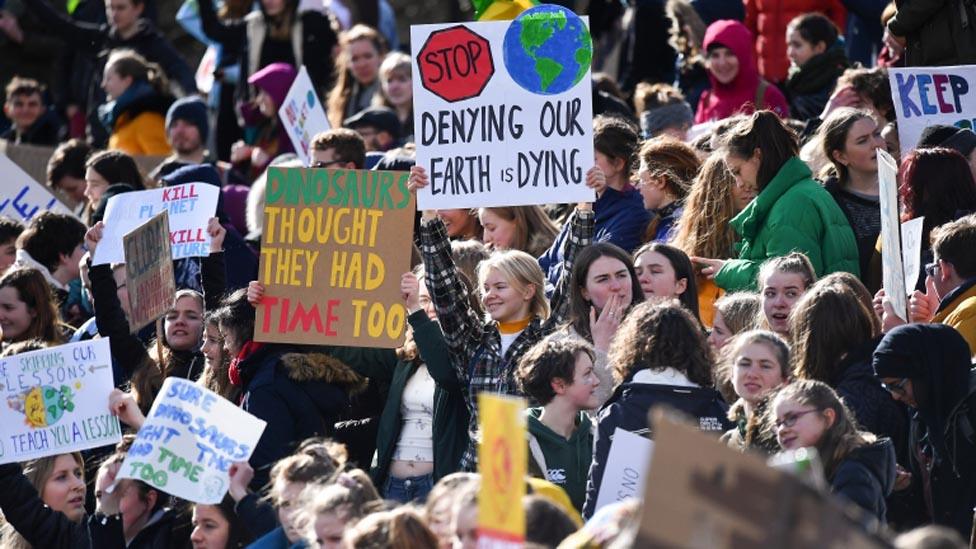
Thousands of Scottish school pupils took part in climate protests last month
Dozens of towns and cities across the UK have already declared "a climate emergency".
There is no single definition of what that means but many local areas say they want to be carbon-neutral by 2030.
Some councils have promised to introduce electric car hubs or build sustainable homes to try to achieve that goal.
It's a much more ambitious target than the UK government's, which is to reduce carbon emissions by 80% (compared to 1990 levels) by 2050.

Putting climate 'centre stage' of policy?
By Roger Harrabin, Environment Analyst
What would it mean to acknowledge a climate emergency or climate crisis? Well, it would put the climate at centre stage of government policy.
For years politicians have devised fine policies on the environment, only to see them fail as other issues jostled to the political fore.
The UK for instance is legally committed to long-term climate change targets - but it's already slipping away from its medium-term goals.
Transport and agriculture are especially culpable.
Environmentalists say it's inconceivable that any government caring about the climate thinks expanding Heathrow is compatible with cutting emissions.
In terms of how the government is run under an emergency scenario - it would have to move towards the equivalent of a war footing.
This sounds melodramatic, but it would mean that cutting greenhouse gas emissions becomes a central goal of the UK's economic policy, with all governments taking responsibility - not just the Business Department and Defra.
This, according to Professor Jim Watson from the UK Energy Research Centre, means a central role for the Treasury.
It would monitoring emissions as closely as we monitor GDP growth and employment, and ensure that all government decisions are compatible with a net zero pathway.
Declaring an emergency or a climate crisis could have psychological advantages too: If we keep repeating a phrase it tends to become reality in our minds. That would help keep the climate at the forefront of decision-making.
There are problem with the emergency definition, though.
First, is the slow relentless nature of climate change itself. Can we see climate change as an emergency in the way we accept that, say a flu pandemic is an emergency?
Then there's the timescale.
From 1939-1945, a state of emergency won the war. But that was six years of toil and sweat… not 32 years as we struggle towards our 2050 date for eliminating emissions.

- Published30 April 2019
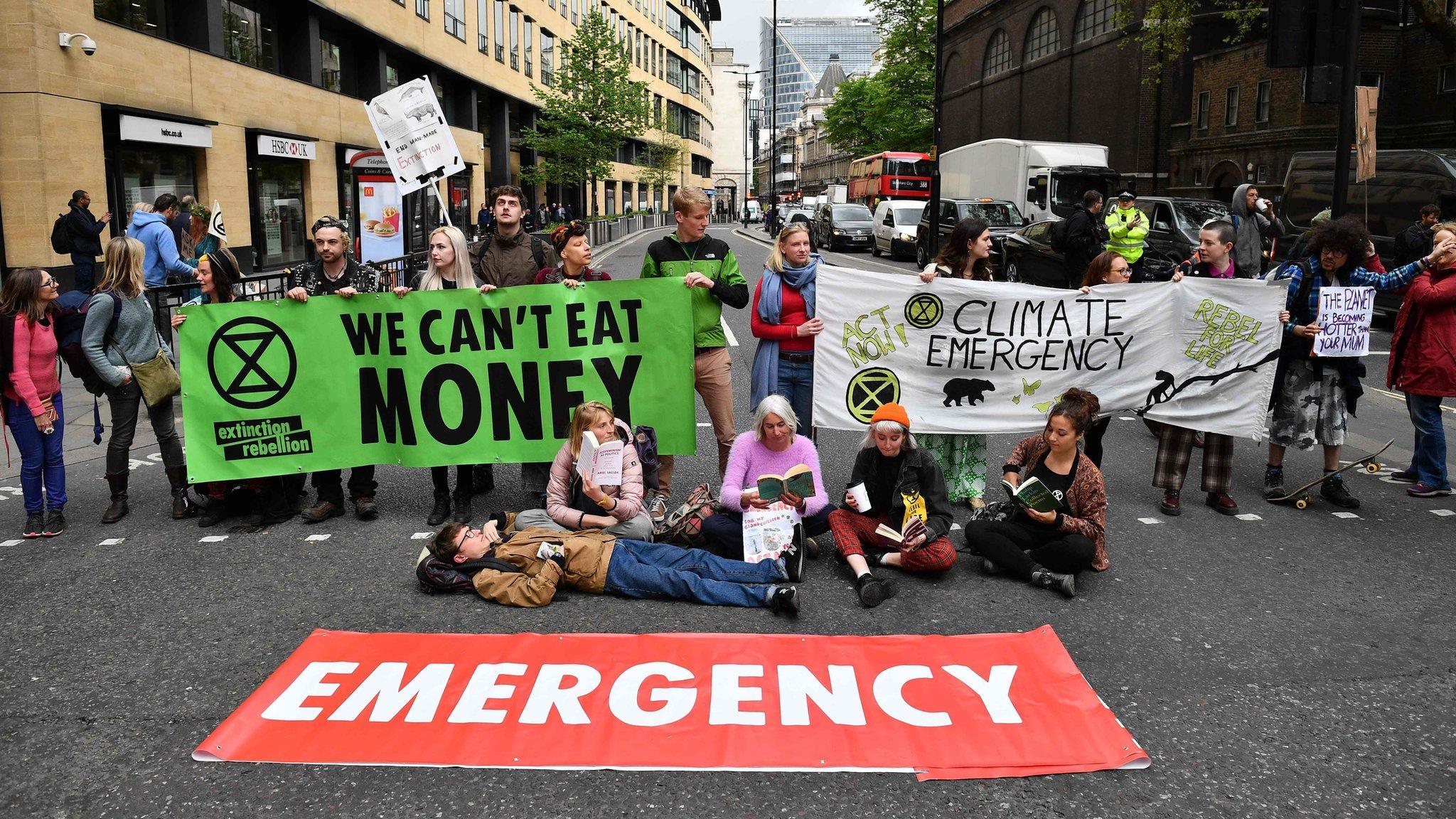
- Published25 April 2019
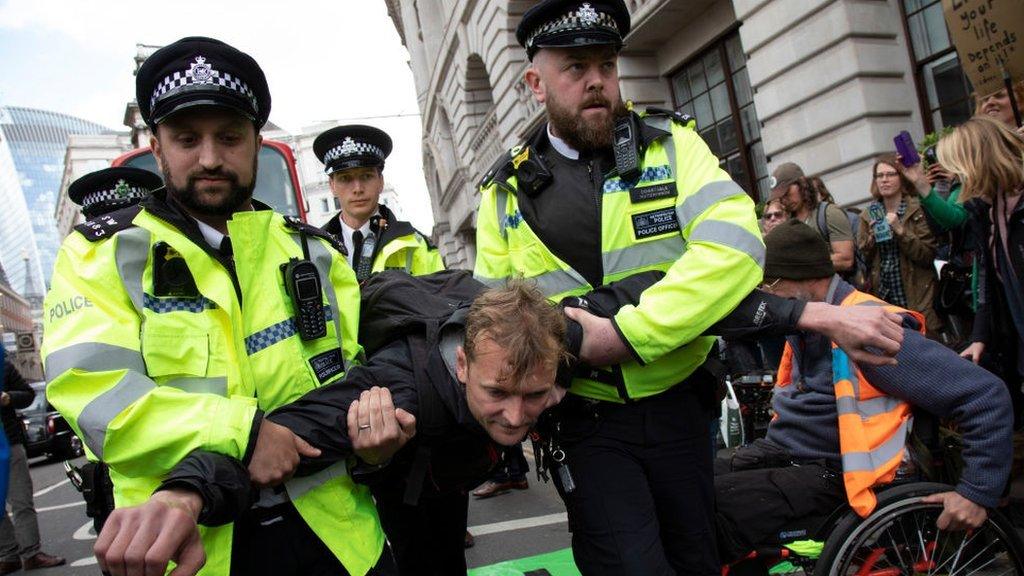
- Published28 April 2019
